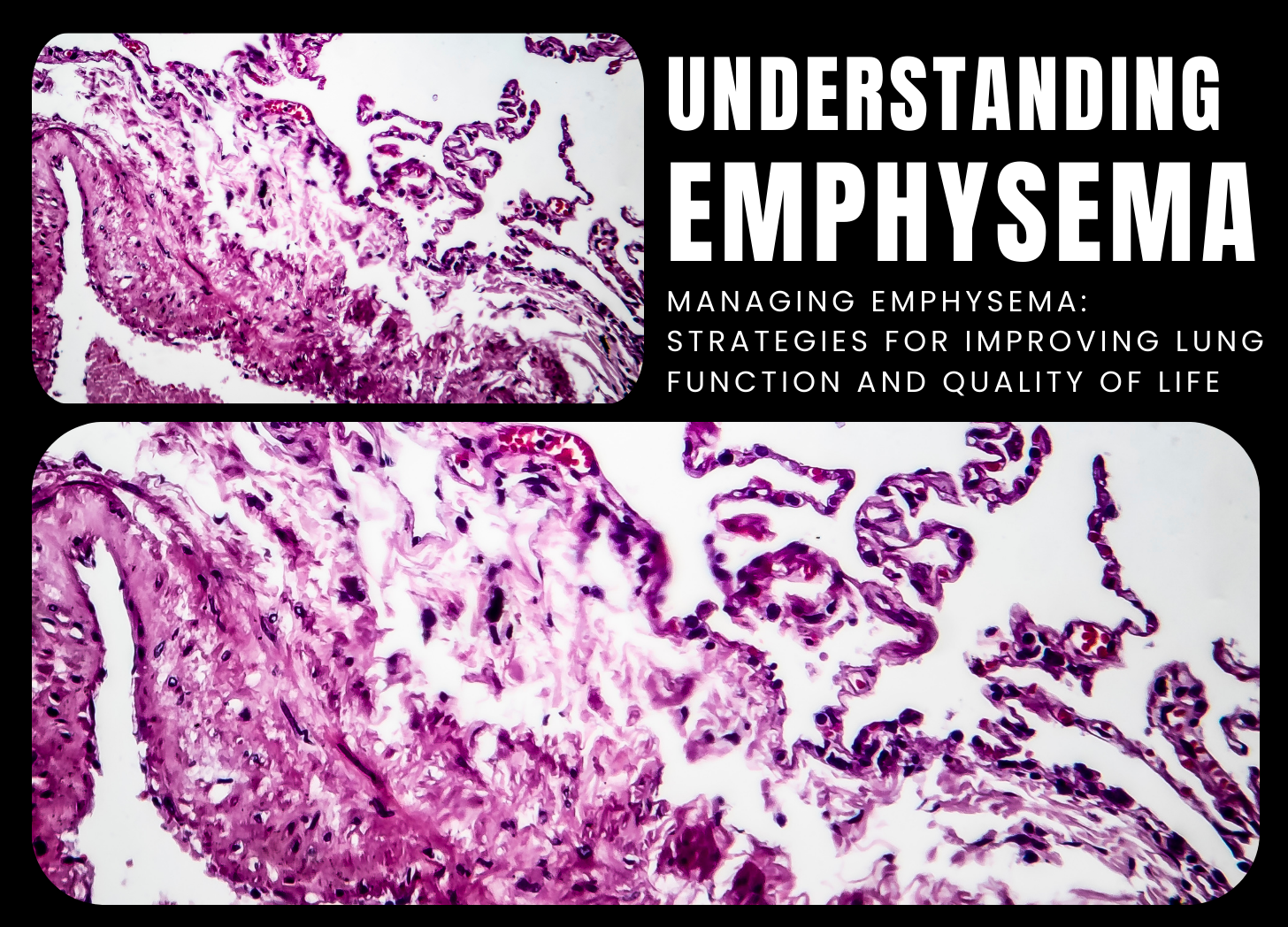Contact Us
Contact Us

Emphysema is a chronic lung disorder characterized by the progressive deterioration of the air sacs (alveoli) in the lungs. This degradation impairs the lungs’ ability to efficiently exchange oxygen and carbon dioxide, leading to symptoms such as shortness of breath, coughing, wheezing, and chest tightness. Emphysema is often associated with chronic obstructive pulmonary disease (COPD), a group of lung disorders that includes chronic bronchitis.
The primary cause of emphysema is prolonged exposure to irritants and toxins, especially cigarette smoke. Smoking is the leading cause, accounting for the vast majority of cases. Other risk factors include:
The primary symptom of emphysema is shortness of breath, which typically worsens over time as lung function declines. Other common symptoms include:
Individuals with advanced emphysema may experience severe respiratory difficulties and might require supplemental oxygen therapy to maintain adequate blood oxygen levels.
Emphysema is usually diagnosed through a combination of medical history, physical examination, and pulmonary function tests to assess lung function. Imaging tests, such as chest X-rays and computed tomography (CT) scans, can help evaluate lung structure and identify signs of emphysema, such as hyperinflation and bullae.
The management of emphysema focuses on alleviating symptoms, slowing disease progression, and improving quality of life. Key steps include:
Emphysema is a chronic lung disorder marked by the progressive deterioration of the alveoli, leading to symptoms like shortness of breath and coughing. While there is no cure for emphysema, effective management strategies—including quitting smoking, medication, pulmonary rehabilitation, and surgical interventions—can help individuals maintain lung function, manage symptoms, and improve their quality of life.
Post a Comment